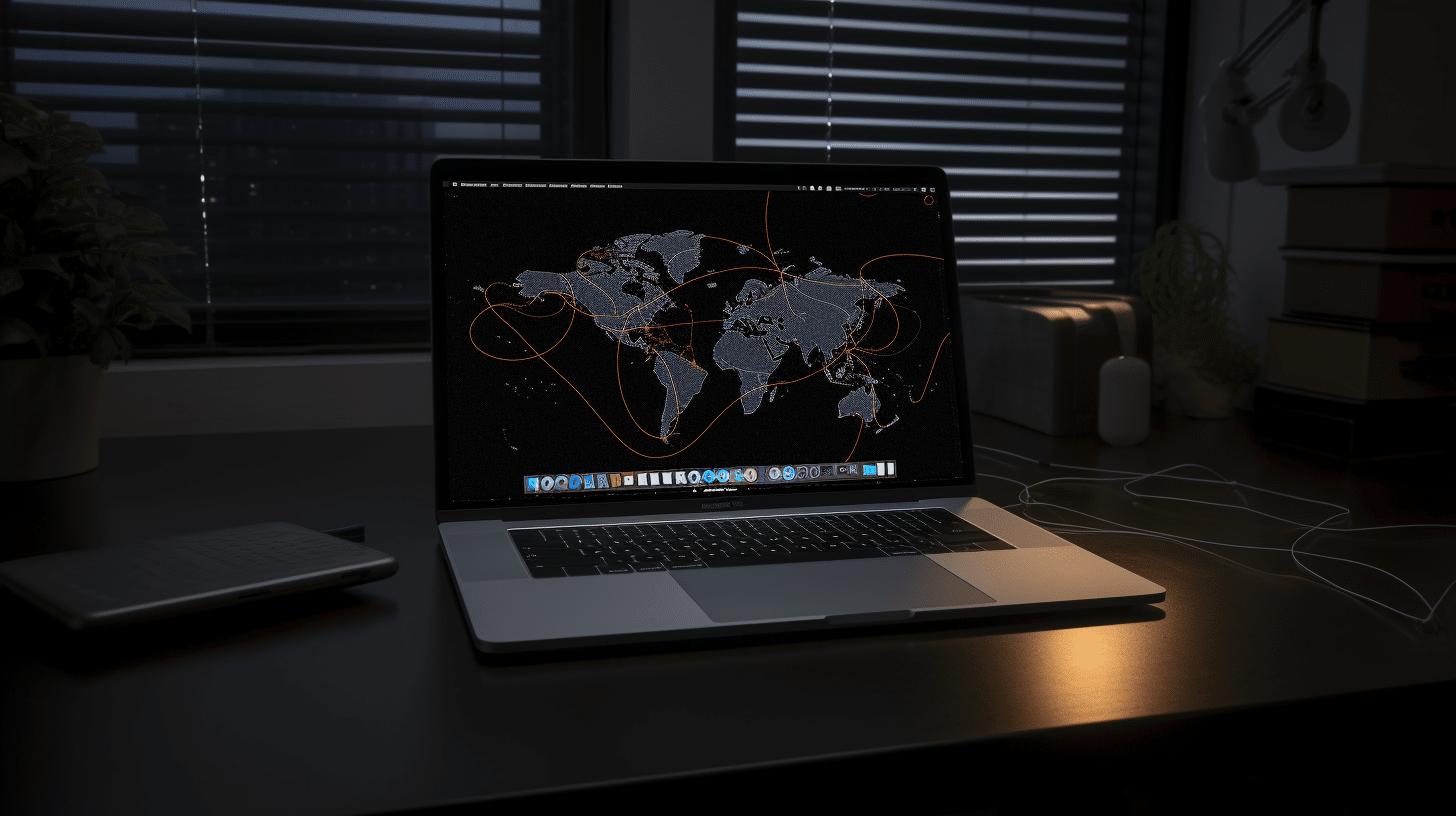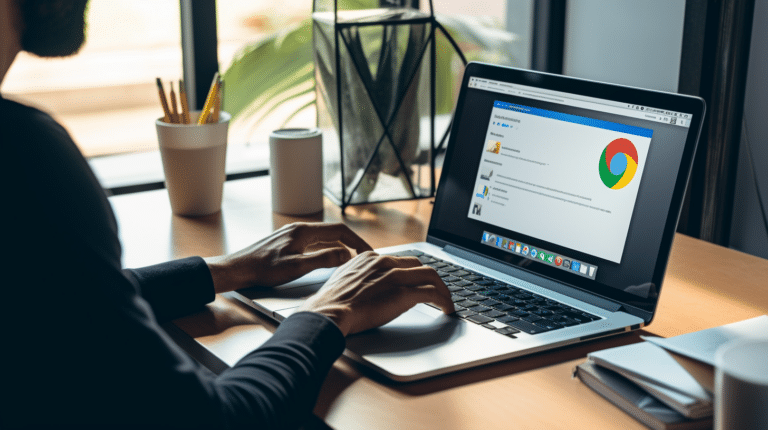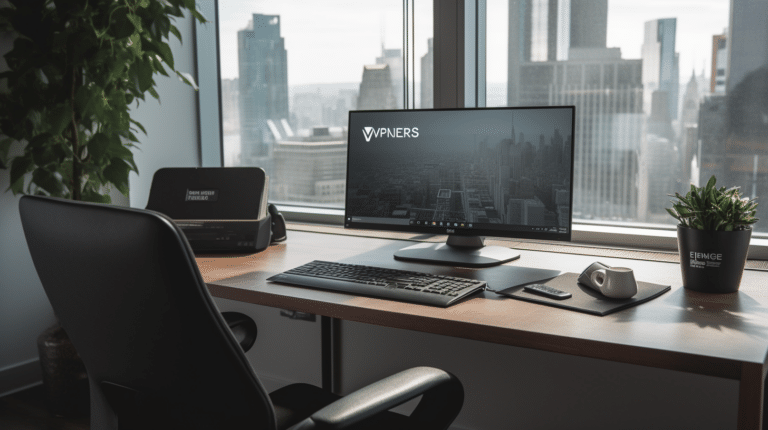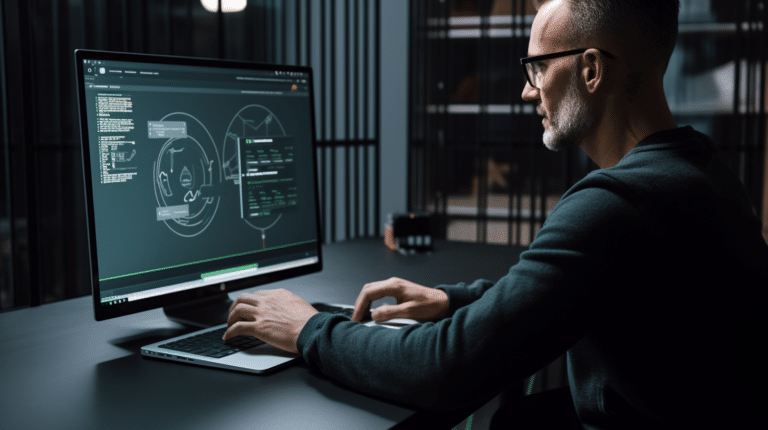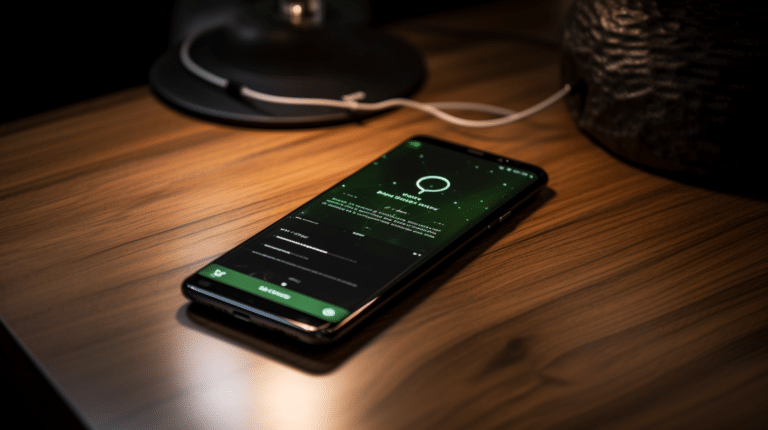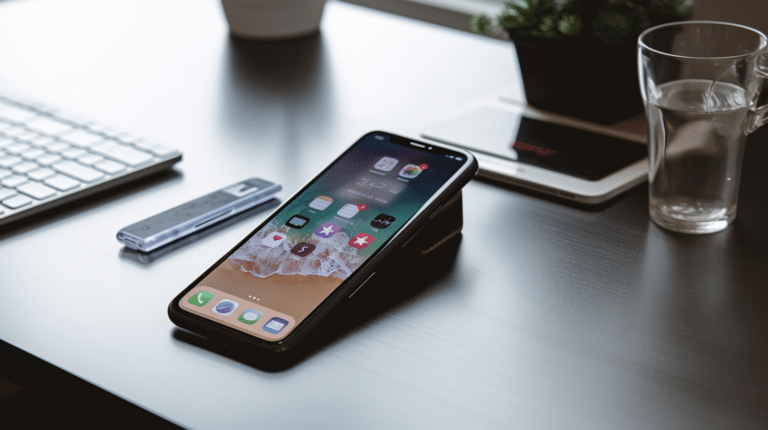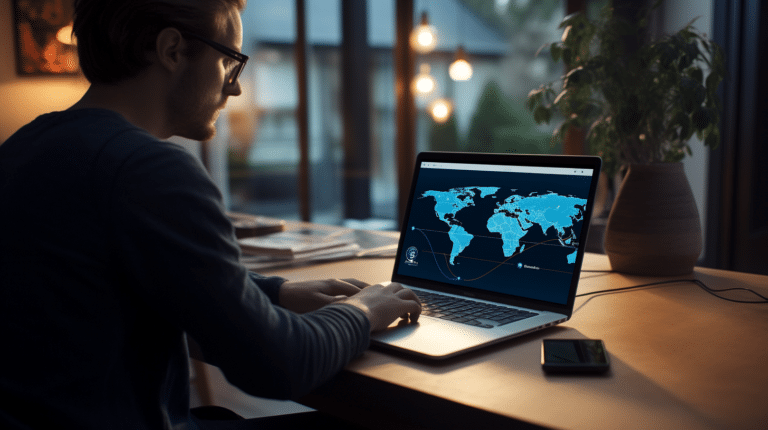A Virtual Private Network (VPN) is an essential tool for internet users concerned about their online privacy and security. It works by encrypting your data and rerouting it through a secure server, making it difficult for anyone to access your sensitive information. By using a VPN, you can ensure your online activities remain private, even when connecting to public Wi-Fi networks.
One of the primary functions of a VPN is to hide your IP address and location. It does this by connecting you to a remote server, which gives you a different IP address, effectively masking your real one. This helps protect your personal data and privacy, as well as your browsing and search history, from being tracked or monitored by third parties like advertisers or even government agencies. In addition to this, VPNs can help you bypass geo-restrictions and content restrictions imposed by websites and platforms, enabling you to access a wider range of content regardless of your physical location.
Key Takeaways
- VPNs hide your IP address and location, protecting your personal data and privacy online
- They can mask your browsing and search history, shielding you from online threats and tracking
- VPNs allow you to bypass geo-restrictions and content restrictions, enabling secure access to a wider range of content.
Hiding Your IP Address and Location
A Virtual Private Network (VPN) is a powerful tool that helps users maintain anonymity and protect their online activities by hiding their IP address and location. An IP address is a unique identifier assigned to each device connected to the internet. It allows data to be sent and received between devices, much like a mailing address facilitates the delivery of physical mail.
By using a VPN, you can mask your original IP address and replace it with a different one, typically from a server in another geographic location. This process is known as geo-location masking, which effectively spoofs your actual location and makes it difficult for third parties to pinpoint your physical whereabouts. As a result, VPNs grant users a higher level of anonymity and protect their online activities from being monitored or traced.
However, it’s important to note that the quality of the anonymity provided depends largely on the VPN provider. While there are numerous providers in the market, they can differ in terms of security, performance, and privacy policies. Before choosing a VPN, it’s essential to thoroughly research your options and select a reputable provider with a strong commitment to user privacy.
An additional benefit of using a VPN is its ability to bypass geo-restrictions and access content that may be blocked in your region. For example, some streaming services have licensing agreements that restrict content availability to specific regions. By masking your IP address and location, a VPN allows you to access a broader range of content, regardless of your physical location.
In summary, VPNs are an effective way to hide your IP address and location, providing increased anonymity and protection from potential online threats. However, it’s imperative to select a reliable and trustworthy VPN provider to fully reap the benefits of this technology and maintain your online privacy. Remember that your choice of VPN provider plays a significant role in the level of security and privacy you can expect.
Protecting Personal Data and Privacy
One of the primary uses of a VPN is to protect personal data and privacy by hiding your online activities. A VPN does this by encrypting your internet traffic, effectively making it unreadable to unintended recipients, such as hackers, surveillance agencies, and even your Internet Service Provider (ISP).
By using a VPN, you can protect sensitive information such as payment details, login credentials, and private conversations. Since VPNs create a secure tunnel between your device and the VPN server, this encrypted connection ensures that your online activities are private and secure from potential identity theft or cyberattacks.
Moreover, a VPN can help maintain your privacy by masking your true IP address. This is particularly beneficial for protecting your identity, as your IP address can reveal your location and other information about you. By connecting to a VPN server, your actual IP address gets replaced with the server’s IP address. As a result, websites and online services are unable to trace your online activities back to your device, providing an additional layer of privacy.
Another privacy benefit of using a VPN is its ability to avoid certain online tracking techniques, such as cookies and browser fingerprinting. While a VPN may not eliminate all tracking methods, it can significantly reduce the likelihood of websites and advertising networks accessing and collecting your personal information.
It is crucial to note that not all VPN services provide the same level of encryption and privacy protection. Some VPN providers may log user data or have vulnerabilities in their security measures. Therefore, it is essential to choose a reputable VPN service that prioritizes privacy and utilizes advanced encryption protocols, such as OpenVPN or WireGuard, to ensure your data is secure.
In conclusion, using a VPN can effectively protect your personal data, privacy, and online identity by encrypting your internet traffic, hiding your IP address, and reducing the risk of unauthorized access to sensitive information. By choosing a reliable VPN service that prioritizes security and privacy, you can ensure a safer online experience with minimal risks.
Masking Browsing and Search History
A Virtual Private Network (VPN) is a crucial tool for protecting your online privacy and security. One of its primary features is the ability to mask your browsing and search history from various entities. In this section, we will discuss how VPNs assist in achieving this privacy.
Using a VPN allows you to encrypt your internet traffic and hide your online activity from potential eavesdroppers such as your Internet Service Provider (ISP), network administrators, and even hackers. By establishing a secure connection between your device and the VPN server, your browsing and search activity becomes concealed, rendering it unreadable to third parties.
Another essential function of VPNs is masking your IP address. Your IP address is a unique identifier that can reveal your physical location and be used to track your activities online. VPNs assign you a new IP address from their server, effectively masking your original IP. This makes it difficult for your ISP, websites, and other observers to associate your browsing history with your real identity.
Search history is an integral aspect of your online behaviour. Popular search engines like Google store your search history to provide personalised results and targeted advertisements. By using a VPN, you can minimize the accumulation of your search history by concealing your true IP address and location. This makes it harder for search engines to build a comprehensive profile of your online activities.
In addition to masking your IP address and encrypting your traffic, VPNs can also help safeguard your privacy with regard to cookies. Cookies are small text files stored on your computer by websites to remember your preferences and track your behaviour. VPNs can’t block cookies themselves, but by obscuring your actual IP address, they make it harder for websites and advertisers to track you based on your browsing habits.
Finally, while VPNs can offer an added layer of protection, it’s essential to understand their limitations. VPNs alone cannot protect you from browser fingerprinting or stop websites from tracking you using techniques like canvas fingerprinting. To further enhance your privacy, you should also consider using other tools like ad blockers, privacy-oriented browsers, and disabling third-party cookies in your browser settings.
By incorporating VPNs into your online routine, you can better protect your browsing and search history, minimizing the possibility of your web activity being tracked by ISPs, advertisers, and other entities.
Shielding from Online Threats
A VPN (Virtual Private Network) serves as an essential tool for protecting internet users from various online threats. By establishing an encrypted connection between a user’s device and a remote VPN server, users can secure their online activities from potential eavesdroppers, including hackers, internet service providers (ISPs), and cyber criminals.
One primary threat that a VPN can deter is a malware attack. By utilizing VPN services, users can safeguard their devices against malware intrusions as the encryption prevents unauthorized access to their data. As a result, malicious software such as viruses and Trojan horses cannot easily infiltrate users’ systems.
In addition to malware protection, a VPN can also shield users from hackers. When connected to a VPN, the user’s IP address is concealed, making it difficult for attackers to identify and target the individual’s device. As mentioned in this study, VPNs create private and secure connections that reduce the risk of hackers intercepting or stealing personal data such as login credentials, financial information, or private communications.
Another advantage of using a VPN is that it can help circumvent ISP monitoring. ISPs often have full visibility into their customers’ browsing activities and can potentially throttle bandwidth, block specific websites, or even share data with government agencies and advertisers. By encrypting all internet traffic, a VPN makes it difficult for ISPs to collect this information and protects users’ online privacy.
Phishing attacks are also a prevalent form of cyber threat. In these instances, cybercriminals may use social engineering tactics to deceive users into clicking on fraudulent links, which can potentially lead to the theft of sensitive information or the spread of malware. A VPN offers an additional layer of security by hiding a user’s IP address and ensuring secure communication with websites, reducing the likelihood of falling victim to a phishing attack.
To sum up, a VPN serves as a powerful tool to safeguard online privacy and protect users from various cyber threats, including malware attacks, hackers, ISP monitoring, and phishing attempts. By encrypting internet traffic and hiding the user’s IP address, a VPN equips users with the necessary defenses to browse the web securely and with greater peace of mind.
Bypassing Geo-Restrictions and Content Restrictions
A VPN, or Virtual Private Network, enables users to protect their online privacy by hiding their IP address and encrypting their internet traffic. One of the key benefits of using a VPN is bypassing geo-restrictions and content restrictions on websites and streaming services.
Geo-restrictions are mechanisms that prevent users from accessing specific content based on their geographical location. This can occur when streaming services, gaming platforms, or websites impose restrictions due to licensing agreements, government regulations, or other factors. By connecting to a VPN server in a different location, users can disguise their actual location and access content that was previously unavailable.
Content restrictions, on the other hand, are limitations imposed on specific types of content, such as age-restricted material, explicit content, or content that is not available due to regional disparities. VPNs provide a means of bypassing these restrictions by allowing users to appear like they are connecting from a different location where the content is accessible.
Major streaming services like Netflix, Hulu, and Amazon Prime Video often implement geo-restrictions in their libraries based on the user’s location, limiting the available content for users in certain countries. VPNs allow users to connect to a server in a different country, thus bypassing these restrictions and unlocking a larger library of content.
Gaming platforms also impose geo-restrictions for a variety of reasons, such as distributing exclusive content to specific countries or preventing users from accessing certain servers. By using a VPN, gamers can connect to servers in different regions and benefit from additional content or improved connectivity to their desired gaming servers.
However, it is essential to know that not all VPN providers offer the same level of server coverage, and some may not provide access to specific websites or streaming services. It is crucial to choose a reputable and reliable VPN provider to ensure seamless access to geo-restricted and content-restricted material.
In summary, VPNs are valuable tools to bypass geo-restrictions and content restrictions imposed on websites, streaming services, and gaming platforms. By connecting to a VPN server in another location, users can access previously unavailable content and enjoy a more open and unrestricted online experience.
Accessing Public Wi-Fi Securely
Accessing the Internet via public Wi-Fi hotspots can be a source of convenience and efficiency. Public Wi-Fi networks are available in several establishments, including airports, coffee shops, schools, libraries, and parks. However, utilizing these networks may put your online privacy and digital security at risk. This is because public Wi-Fi is often unsecured, making it an ideal hunting ground for cybercriminals and prying eyes.
Virtual Private Networks (VPNs) are an important tool for maintaining your online privacy and security, especially when accessing public Wi-Fi networks. VPNs create a secure tunnel for your data, which is encrypted and transmitted through a private server, thus hiding your IP address and online activities from hackers, governments, and third-party surveillance.
By establishing a secure connection, a VPN helps protect your sensitive information, such as passwords, bank details, and personal email conversations, from interception by cyber criminals. In addition, VPNs can prevent governments from monitoring your online behaviour and location, which is crucial in maintaining your digital privacy.
However, it is essential to choose the right VPN service, as not all VPNs are created equal. The following factors should be considered when evaluating VPN providers:
- Privacy and security features: Make sure the VPN uses strong encryption, offers secure protocols, and has a no-log policy.
- Speed: Ensure the VPN is fast enough for your needs, as some VPNs can slow down your Internet connection.
- Compatibility: Verify that the VPN works across multiple devices, platforms, and operating systems.
Keep in mind that the security of a VPN is not absolute, and some sophisticated threats may still penetrate this layer of protection. Therefore, individuals should also practice good cybersecurity habits, such as using strong and unique passwords, employing multi-factor authentication, and updating all devices and applications regularly.
Ultimately, using a reputable VPN service and following cybersecurity best practices will help you make the most out of public Wi-Fi hotspots while still safeguarding your online privacy and security.
Additional Features and Benefits of VPNs
Using a VPN (Virtual Private Network) provides numerous advantages to enhance your online experience. One of the primary benefits of VPNs is that they can effectively hide your IP address, allowing you to shield your online identity from unwanted attention. This helps you maintain a good level of privacy, which is essential considering that your ISP (Internet Service Provider) can monitor your online activities.
In addition to hiding your IP address, VPNs can protect against various online threats. They use different VPN protocols, such as OpenVPN, IKEv2, and WireGuard, to encrypt your internet traffic. This ensures that your data remains secure even when connected to public Wi-Fi networks, enhancing your online security.
Another notable advantage of using VPNs is their ability to bypass geographical restrictions. Some apps and websites restrict access to their content based on your location. By connecting to a VPN server in a different country, you can access content that is not available in your region. This feature has made VPNs popular among users who want to access streaming services and other content that might be restricted in their countries.
Several VPNs, such as ExpressVPN, offer obfuscation technology. Obfuscation helps mask your VPN traffic as regular HTTPS traffic, making it difficult for ISPs and other entities to identify that you’re using a VPN. This feature can be useful in countries where VPN usage is restricted or monitored, allowing users to bypass censorship and maintain their online freedom.
VPNs can also help with price discrimination, a common practice deployed by some online retailers and services that offer different prices based on the user’s location. By connecting to a VPN server in a different region, you can compare prices and potentially save money on online purchases.
To ensure the best possible experience, it is essential to choose a reliable VPN provider. Reputable VPNs, like ExpressVPN, offer a wide range of servers, high-speed connections, and robust security features to protect your online activities. They also have user-friendly apps for various devices, making it easy to protect your online identity and enjoy the many benefits that VPNs have to offer.
Addressing Potential Drawbacks and Limitations of VPNs
While VPNs offer numerous benefits, such as hiding one’s IP address and providing a more secure browsing experience, they also come with certain drawbacks and limitations. One of these limitations is the potential for increased data usage. VPNs can cause data consumption to rise due to the overhead of encryption and the addition of headers to every data packet. This can be a concern for users with limited data plans or those using social media and other data-intensive applications.
Additionally, VPNs may not always fully protect users from cybercrime and fraud. While VPNs can help to protect users on public Wi-Fi networks, it is important to note that they cannot make a user completely anonymous. Sophisticated attackers may still be able to exploit vulnerabilities in the local network or third-party applications to gain access to a user’s data.
An important aspect of VPN services is obfuscated servers, which can effectively bypass VPN-blocking measures employed by certain websites or countries. However, not all VPNs offer this feature, and those that do may have varying levels of effectiveness. As a result, it is crucial for users to research and select the best VPNs that offer obfuscated servers if their primary goal is to bypass VPN blocks.
Some users download files or engage in downloading activities through their VPN connection to ensure privacy and security. While many VPNs support the secure downloading of files, they may not always provide the desired level of performance. Factors like server load, connection speeds, and network latency can all impact the reliability and speed of downloading files through a VPN.
VPNs can also have an impact on third parties and various web-based services. Some websites and services might block connections from VPN users because they cannot verify their true location or they suspect potentially nefarious activities. Consequently, users might find themselves unable to access certain content or services while using a VPN.
Lastly, it is important to note that while some VPNs may provide ad-blockers and anti-fraud features, these are not universal across all offerings. Users concerned with online privacy and security should carefully consider these factors when selecting a VPN service.
Ultimately, VPN use comes with several potential drawbacks and limitations, and users must be aware of these elements in order to make informed decisions about their online security.
Frequently Asked Questions
Does a VPN conceal browsing history?
A VPN can help conceal your browsing history from your Internet Service Provider (ISP) by encrypting your internet traffic and routing it through a VPN server. This means your ISP won’t be able to see which websites you visit or the data you send and receive. However, it’s important to note that your VPN provider may still have access to your browsing history, depending on their logging policies.
Can a VPN mask your IP address?
Yes, a VPN can mask your IP address by assigning you a new IP address from the VPN server you are connected to. This new IP address makes it appear as though your internet traffic is coming from the VPN server, rather than your actual location. As a result, websites and other online services will see the VPN server’s IP address instead of your own, providing a layer of anonymity source.
Does a VPN hide your location?
A VPN can help hide your location by routing your internet traffic through a VPN server in a different geographic location. This process masks your IP address with the IP address of the VPN server, making it difficult for websites and services to determine your true geographic location. However, keep in mind that certain websites and services may still estimate your general location using other methods, such as browser cookies or GPS data.
Is device ID hidden by a VPN?
While a VPN can effectively hide your IP address and location, it does not hide your device’s unique identifier (device ID). Your device ID can still be accessed by websites, apps, and services, which may use this information for tracking or personalized content delivery. To increase privacy, you may need to take additional steps, such as disabling device-specific tracking or using privacy-focused web extensions.
Can a VPN usage be tracked?
Although a VPN provides a layer of anonymity by masking your IP address and location, it is still possible for your VPN usage to be tracked in certain circumstances. If your VPN provider keeps logs of your activity, they may be able to provide this information to third parties or law enforcement if required. Additionally, advanced techniques such as Deep Packet Inspection (DPI) can be used to identify VPN traffic source.
Can employer monitor browsing history with VPN?
If you’re using a VPN provided by your employer or if your employer has access to your device, it is possible for them to monitor your browsing history even when using a VPN. In such cases, your employer may have the necessary tools or permissions to access your device’s internet traffic, regardless of whether it is encrypted through a VPN. To ensure privacy, you should consider using a personal VPN on a personal device, while adhering to your company’s policies and guidelines.
